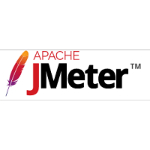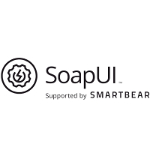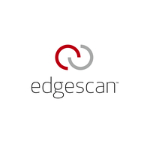List of Best API Security Testing Tools
Showing 10 of 27 productsApache JMeter is a open-source software designed to test the performance and functionality of web applications. With its user-friendly interface and robust features, JMeter allows users to simulate heavy loads on their websites, identify bottlenecks,...Read Apache JMeter Reviews
Experience the ultimate testing tool with SoapUI. This powerful API testing tool allows for seamless integration and thorough testing of your web services. With its user-friendly interface features, SoapUI ensures efficiency and reliability in every...Read SoapUI Reviews
Postman Pro is a software that streamlines the process of API development and testing. As a copy writer, I am excited to introduce this powerful tool that simplifies APIs for developers and promotes collaboration within teams. With its user-friendly...Read Postman Pro Reviews
Apigee Edge is a API management platform that enables businesses to easily design, deploy, and manage their APIs. With its robust features interface, Apigee Edge streamlines API development and facilitates seamless integration, making it the go-to ch...Read Apigee Edge Reviews
Tricentis Tosca, a leading software testing tool, is designed to revolutionize how businesses approach their testing needs. With its intuitive user interface features, Tricentis Tosca simplifies the testing process and ensures maximum efficiency. Say...Read Tricentis Tosca Reviews
Assertible is a and user-friendly software designed to simplify and automate the process of testing and monitoring APIs. With its intuitive interface and robust features, Assertible allows developers to easily ensure the functionality and reliability...Read Assertible Reviews
Appknox is a top-notch mobile security product designed to protect your apps from potential threats. We understand the importance of creating a secure digital environment, which is why our team has developed a unique solution that goes beyond traditi...Read Appknox Reviews
Edgescan is a cybersecurity solution trusted by global enterprises to protect their digital assets. With its advanced technology and expert team, Edgescan offers unparalleled vulnerability management and threat intelligence, ensuring a strong defense...Read Edgescan Reviews
QATTS is a software designed to enhance your businesss quality assurance process. Developed with the latest technology and features, QATTS streamlines your quality control, testing, and reporting to save time and maximize efficiency. Say goodbye to m...Read QATTS Reviews
SyncTree is a and innovative software designed to synchronize data and files across multiple devices and platforms seamlessly. With its advanced technology and user-friendly interface, SyncTree makes sharing and storing data a breeze. Stay connected...Read SyncTree Reviews
- What Is API Security Testing Tools?
- Top Reasons Why Businesses Need API Security Testing Tools?
- What Are the Top Key Features of API Security Testing Tools?
- What Are the Top Benefits of API Security Testing Tools?
- What Are the Steps to Choose the Right API Security Testing Tools?
- What Are the Types of API Security Testing Tools for Different Industries?
- What Are the Technology Trends for Best API Security Testing Tools?
- What Are the Deployment Options for API Security Testing Tools?
What Is API Security Testing Tools?
API security testing tools are employed for the purpose of evaluating the security aspects of application programming interfaces (APIs). Application Programming Interfaces (APIs) provide the communication and interaction between two distinct software applications via the internet. These tools are frequently employed for the purpose of accessing databases, facilitating data transmission, and providing support for transactions.
API security testing tools are designed to identify and reveal potential weaknesses and vulnerabilities that may result in the unauthorized access of an application's data by malevolent individuals. Through the process of API testing, security teams are able to discern many issues including but not limited to poor authentication mechanisms, improper access control measures, data injection vulnerabilities, and other forms of security weaknesses.
In the process of API testing, security testers employ specialized tools to assess the content of messages transmitted through the API and scrutinize the corresponding responses in order to detect any vulnerabilities. This enables testers to discern and evaluate aspects such as access control, authentication mechanisms, logging procedures, and application design.
Security testing tools for API have the capability to perform static, dynamic, and penetration testing as well. Static testing encompasses a comprehensive examination of the code, whereas dynamic testing assesses the functionality of the API and its response to various queries.
Penetration testing assesses the ability of the API to withstand a deliberate and focused attack. Through the utilization of rest API testing tools, enterprises can assess and detect conceivable security vulnerabilities within their API.
Consequently, best API security testing tools can be promptly rectified prior to any malevolent entities exploiting them. The primary objective of these technologies is to enhance the security of applications and minimize the probability of a successful attack.
Top Reasons Why Businesses Need API Security Testing Tools?
1. Ensures online security and privacy against malicious activities: API security testing tools play a crucial role in the identification and mitigation of vulnerabilities within an application, hence safeguarding the data from unauthorized access and destructive activity.
2. Examines each API call: These tools possess the capability to identify whether the API is transmitting the desired queries and receiving the correct responses, hence facilitating the identification of any erroneous system logic.
3. Flexibility and scalability: protection testing solutions are specifically developed to possess adaptability and the ability to expand in accordance with the intricacy of the program, hence delivering an elevated degree of protection.
4. Timely detection of security flaws: These tools has the capability to rapidly analyze and identify any vulnerabilities that might be present inside the system, hence facilitating immediate intervention to mitigate any possible risks.
5. Validates authentication: The implementation of safe authentication for API calls is of utmost importance as it guarantees the establishment of a secure and protected environment. API security testing tools have the capability to verify the proper configuration of authentication mechanisms.
6. Assesses the effectiveness of security policies: The aforementioned technologies has the capability to evaluate the efficacy of security policies and propose modifications, if necessary, with the objective of upholding a secure environment.
7. Continuously monitors for changes: The tools have the capability to be configured in a manner that enables them to periodically monitor the system for alterations and promptly notify of any malevolent activity, hence mitigating any security risks.
8. Mitigates application risks: Security tools possess the capability to detect potential vulnerabilities inside the application system, hence facilitating the implementation of appropriate measures to mitigate these risks and minimize the likelihood of a security breach.
9. Encrypts data: The implementation of data encryption within application programming interfaces (APIs) is necessary in order to uphold the confidentiality of data. Security testing tools for API can aid in the verification of proper encryption of data.
10. Tests the infrastructure components: The aforementioned tools has the capability to assess and appraise the various infrastructure components of an application in order to identify and address any potential difficulties that may arise.
11. Conducts load testing: These tools have the capability to detect security vulnerabilities during periods of high application usage.
12. Automates security tasks: The technologies possess the capability to automate security tasks, hence diminishing the temporal and cognitive exertion needed to assess potential threats.
13. Supports mixed API architectures: Ensuring the presence of distinct security methods for APIs with varying architectures is of utmost importance. API security testing tools serve as valuable resources in verifying the efficacy of these protocols.
14. Facilitates risk assessments: Security tools have the capability to do a comprehensive analysis of the application in order to promptly detect and assess any possible hazards.
15. Enhances overall system visibility: Security solutions play a crucial role in enhancing system visibility and facilitating continuous monitoring to identify and address any anomalous activities.
What Are the Top Key Features of API Security Testing Tools?
1. Authentication: API security testing tools offer authentication mechanisms for application programming interfaces (APIs). Implementing security measures is crucial in order to mitigate the risk of unauthorized access to protected application programming interfaces (APIs).
2. Authorization: Best API security testing tools also include functionalities for authorization. This feature enables users to exercise control over the access to the application programming interface (API), so guaranteeing that only authorized users are granted access to the relevant data or services.
3. Access Control: API security testing tools provide access control capabilities that enable the restriction of access to online APIs. This measure is to guarantee that users are not granted illegal access to confidential data or functionalities.
4. Encryption: API security testing programs also include encryption functionalities to guarantee the secure transmission of data between servers.
5. Tokenization: Rest API testing tool also include tokenization features, which enable the tokenization of API requests to enhance security.
6. Auditing: Best API security testing tools offer logging and auditing functionalities that enable the tracking and monitoring of user activity. This process aids in the detection and identification of security incidents or instances of illegal access.
7. Data Leakage Protection: API security testing solutions provide functionality for safeguarding against data leakage, hence empowering enterprises to safeguard sensitive data from unwanted access.
8. Intrusion Detection: API security testing tools offer intrusion detection features that enable the identification of malicious API calls. This aids in the detection of malevolent efforts to get unauthorized access to the application programming interface (API).
9. Security Best Practices: Best API security testing tools provide security best practice standards to assure the ongoing security of APIs. This measure aids in safeguarding companies from potential weaknesses and dangers.
What Are the Top Benefits of API Security Testing Tools?
1. Improved Product Security: API security testing tools are capable of efficiently detecting vulnerabilities in APIs, enabling developers to promptly address these weaknesses before they may be maliciously exploited. Therefore, the utilization of these technologies can assist organizations in guaranteeing enhanced security for their products, thereby reducing the likelihood of being attacked by criminal entities.
2. More Efficient Testing: Best API security testing tools provide the capability to automate the testing process, hence enhancing efficiency and simplifying the assessment of vulnerabilities in APIs. These tools enable the precise identification of security concerns within APIs. This practice aids in alleviating the workload on development teams and enhancing the efficacy of the testing procedure as a whole.
3. Better Compliance: API security testing tools play a crucial role in ensuring that firms adhere to the necessary security standards and legislation pertaining to API development. This measure can assist organizations in mitigating substantial financial penalties related to non-compliance and upholding sound operational protocols.
4. Faster Time-to-Market: Security testing tools for API are utilized to rapidly and precisely detect potential flaws and vulnerabilities, enabling developers to undertake the requisite measures in order to guarantee that their solutions adhere to the most stringent security criteria before to their release. This facilitates the expeditious delivery of organizations' products to the market, hence minimizing any potential delays.
5. Improved Cost Savings: Organizations can mitigate the expenses related to updates and patches resulting from the detection of vulnerabilities in application programming interfaces (APIs), hence decreasing the overall cost of product development. Best API security testing tools play a critical role in assisting organizations in the early identification of vulnerabilities during the development process, resulting in significant time and cost savings.
What Are the Steps to Choose the Right API Security Testing Tools?
1. Identify the security needs of the target API: In order to ensure the selection of the most suitable testing tool, it is important to possess a comprehensive understanding of the pertinent security features and protocols associated with the API.
2. Evaluate the tools available on the market: This study aims to conduct a comprehensive analysis and comparison of various testing tools, taking into account their distinct characteristics, financial implications, implementation intricacies, and user-centric design.
4. Make sure the tools are compliant: Ensure that the tool adheres to the appropriate security rules and legislation.
5. Create a risk assessment process: Prior to utilizing the API testing tool, it is imperative to establish and execute a suitable risk assessment procedure in order to ascertain the accurate identification of risks.
6. Test frequently: Security testing tools for API is imperative to conduct frequent testing and timely updates of the tools in order to identify and promptly address any vulnerabilities that may arise.
What Are the Types of API Security Testing Tools for Different Industries?
The selection of API security testing tools may differ among various sectors. In a broad sense, API security testing tools should possess the capability to encompass the subsequent domains.
1. Authorization and authentication: The selection of API security testing tools may differ among various sectors. In a broad sense, API security testing tools should possess the capability to encompass the subsequent domains.
2. Access control policy: The evaluation of access control strategies with the aim of guaranteeing authorized access and control over safeguarded resources.
3. Data protection: This paper aims to examine the identification of potential data breaches that may arise during the process of moving data between different systems.
4. Enumeration and directory traversal: Examine probable avenues that may be exploited to illicitly obtain access to confidential data.
5. Security headers: Conducting an examination to assess the adequacy of the implementation of security headers, such as X-XSS and X-Frame, among others.
6. Input validation: Conducting assessments to identify and evaluate any weak parameters and vulnerabilities susceptible to exploitation.
7. Parameter Tampering: Determining the potential for modifying the API to induce malfunctions.
8. Connection Testing: Verifying the security of API connections, namely whether they are established through the HTTPS protocol or other encryption methods.
9. Performance Testing: The evaluation of the API's performance, encompassing factors such as response time and load capacity, is undertaken.
10. Encryption: The evaluation of the encryption and decryption procedures is conducted to ensure the absence of any malevolent code during data transmission.
What Are the Technology Trends for Best API Security Testing Tools?
The assessment of API security is an essential element in safeguarding an organization's assets against cyber-attacks. Consequently, it is imperative to remain knowledgeable about the most recent advancements and patterns in this domain. In the absence of a contemporary API security testing solution, the potential vulnerabilities faced by your firm encompass data loss, malware infections, and many forms of hostile conduct.
The subsequent enumeration comprises a selection of technology developments pertaining to optimal API security testing tools.
• Automation: The utilization of automation in API security testing has been progressively significant, enabling the efficient and timely examination of APIs on a large scale. The utilization of automation technologies has effectively mitigated the intricacies associated with manual API testing by offering a convenient means to access and evaluate APIs remotely.
• Security Scanning: API security scanning is a type of automated security testing that aids in the detection of potential vulnerabilities or security threats linked to an API. The functioning of the system involves the process of analyzing the code of an Application Programming Interface (API) in order to identify and detect any potential instances of malicious behaviors or malicious code.
• Cloud-Based: The popularity of cloud-based API security testing solutions is on the rise due to its scalability, cost-effectiveness, and ease. Cloud-based solutions enable organizations to efficiently and flexibly expand their API testing endeavors in tandem with their business expansion, obviating the need for substantial investments in costly gear or software.
• API Analytics: API analytics offer valuable insights into the operational efficiency of APIs, enabling organizations to gain a comprehensive understanding of user interactions with their APIs and pinpoint potential areas for enhancement. This system facilitates the examination of API utilization, efficiency, and integrity with the aim of actively monitoring APIs and identifying possible risks and vulnerabilities.
• Artificial Intelligence (AI): The prevalence of AI-driven API security testing solutions is on the rise as a result of their capacity to anticipate and identify potential vulnerabilities prior to their manifestation and subsequent harm. AI-powered solutions have the capability to discern potentially suspicious activities and detect irregularities that may not be discernible using conventional security testing methodologies.
What Are the Deployment Options for API Security Testing Tools?
1. Cloud-based Deployment: This particular deployment option enables enterprises to leverage cloud-based API security testing solutions with minimal investment and infrastructure configuration.
2. On-premise Deployment: In the context of API security testing, on-premise deployment refers to the practice of corporations acquiring and installing the necessary tools directly onto their systems. This particular strategy may be deemed the most optimal selection for firms who possess fluctuating network demands.
3. Hybrid Deployment: The hybrid deployment approach for API security testing tools integrates components from both cloud-based and on-premise deployment methods. This enables organizations to customize their security tools to align with their unique needs and characteristics.










